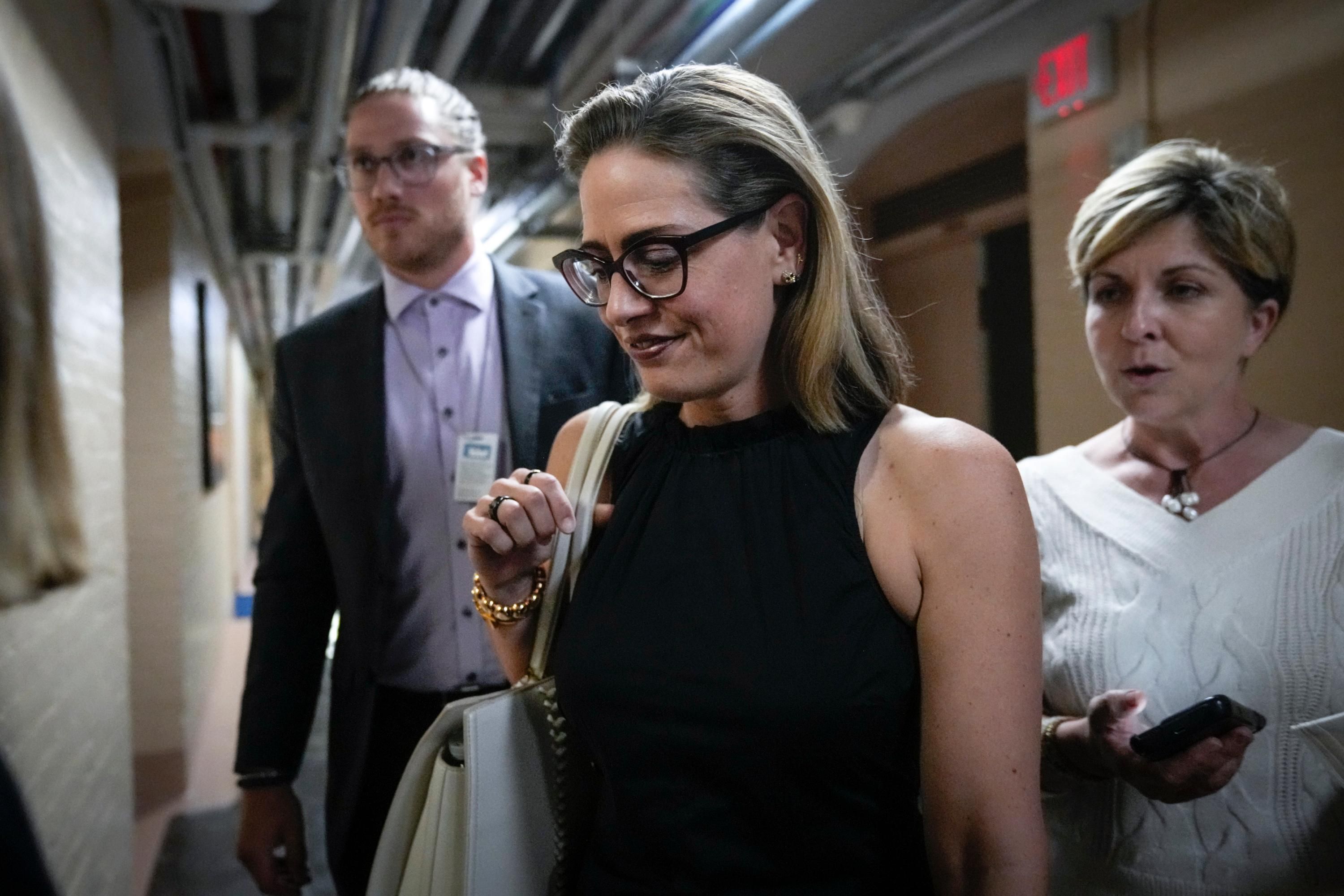
Sen. Kyrsten Sinema has not said yet whether she will support the Inflation Reduction Act, the $739 billion package hammered out by Sen. Joe Manchin and Senate Majority Leader Chuck Schumer and announced last Thursday, but as she reviewed the 725-page bill over the weekend, reports suggested she is likely to object to a $14 billion provision taking aim at the preferential tax rates for wealthy investors—who make up a large portion of her donor base.
"The new reconciliation bill will lower the cost of prescription drugs. Sen. Sinema is holding it up to try to protect ultra-rich hedge fund managers so they can pay a lower tax."
Sinema (D-Ariz.) has long objected to the closure of the carried interest loophole, which pertains to the percentage of profits hedge fund managers keep from investments. The profits are taxed at a rate of about 20% compared to the 37% top tax rate for ordinary income.
The bill would not entirely close the loophole, but would lengthen "the amount of time that you have to hold the investment for it to qualify as a capital gain," making it harder for wealthy investors to benefit.
Sinema counts private equity firms among her top contributors, with the securities and investment sector donating more than $2.2 million to her since 2017, according to OpenSecrets.
The American Investment Council, which represents private equity firms including Sinema contributor Blackstone, quickly came out against the carried interest provision, claiming it would harm small businesses' ability to "survive and grow" because "74% of private equity investment went to small businesses last year."
Considering the Arizona lawmaker's objections to closing the loophole, Business Insider reported, "It's possible Democrats will wait days, if not weeks before Sinema breaks her silence on the package."
Rep. Ruben Gallego (D-Ariz.), who has released ads in recent days suggesting he could challenge Sinema for her Senate seat in 2024, took aim at the lawmaker on social media as she refused to say late last week whether she would support the IRA—even though the package also contains provisions she has fought for, including one allowing Medicare to negotiate prescription drug prices.
"Arizonans cross the border every day to Mexico to buy prescription drugs. The new reconciliation bill will lower the cost of prescription drugs. Sen. Sinema is holding it up to try to protect ultra-rich hedge fund managers so they can pay a lower tax," said Gallego.
Democrats including Manchin (D-W.Va.) are hoping the bill can be passed this week through reconciliation, which would allow the party to approve it without any support from Republicans. Manchin said after the bill was announced that he was "adamant" about keeping the carried interest provision in the final legislation.
But according to Axios, Sinema has indicated she is "open to letting Republicans modify the bill" as the GOP plans to "attempt to kill the reconciliation package with poison pills," further weakening a package which already mandates oil and gas leasing in Alaska and the Gulf of Mexico and severely limits the authorization of new wind or solar energy development, angering climate campaigners.
While progressives have objected to those giveaways to the fossil fuel industry, climate action groups are also counting on other "transformative" investments in renewable energy to pass as part of the package, and Sen. Elizabeth Warren (D-Mass.) said late Thursday that addressing the carried interest loophole is "exactly the right thing" for Democrats to do.
"The adjustments to carried interest are going to fall on the richest Americans who have been using a tax loophole to not pay the taxes that everybody else has to pay," Warren told Business Insider. "These are good moves."
This content originally appeared on Common Dreams - Breaking News & Views for the Progressive Community and was authored by Julia Conley.